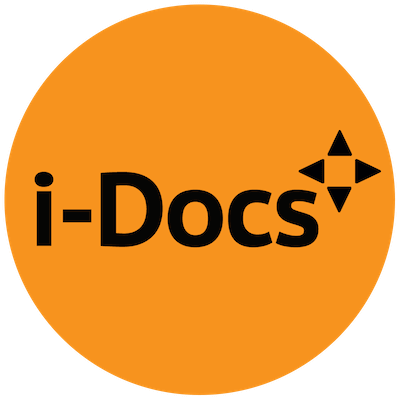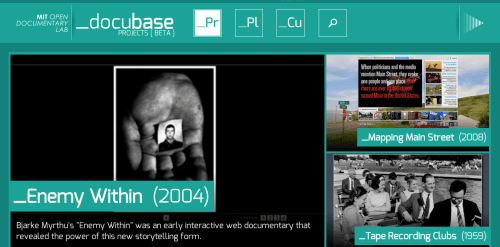Although the International Documentary Film Festival Amsterdam (IDFA) finished on Monday, there’s still tons of things to explore from the event. I’m still on the look out for any slides that get posted up or reviews of the festival, so this list may get modified, but for now here’s a a few of the big things that happened there:
Jonathan Harris wins Digital Storytelling award
From a jury consisting of Jason Brush, John MacFarlane and Kira Pollack, the following projects were nominated for the Digital Storytelling award: Hollow by Elaine McMillion, I Love Your Work by Jonathan Harris and Just a Reflektor by Vincent Morisset and Aaron Koblin.
As you can tell from the heading, I Love Your Work won! You can read the full jury statement, as well as seeing Jonathan’s response on the IDFA site. If you haven’t checked out the project yet and the write up from IDFA has intrigued you, you can still schedule a viewing….
Ingrid Kopp and Adnaan Wasey talk Hackathons
The pair have kindly uploaded their slides from the IDFA session:
The NFB/TOXA launch docugame Fort McMoney
IDFA 2013: The Endless Frontier of Interactive Reality
As there is no format to follow and the forms still a multitude of possibility, one has to hold on to the lessons given during Doclab. One of those lessons was voiced in the co-presentation of Ingrid Kopp (Tribeca New Media Fund) and Adnaan Wasey (POV Interactive) on the top five lessons on a good Hackathon:
“Only filmmakers open to collaboration make great projects.”
A brilliantly in-depth write up from Dutch reporter LJ Kessels.
Tweets, links & quotes
Storify’s from me and Dutch blogger Katía Truijen with tons of great links, tweets and other great things mentioned during the DocLab.
MIT Open Doc Lab launches Docubase
From MIT and Upian, Docubase is a pretty definitive collection of interactive documentary projects which is set to expand over time. Organised and accessible, it is an incredible resource for the interactive documentary field and includes a curated playlist from our very own Mandy Rose!
Here’s a overview from MIT about the site:
1) We’ve collected a large number of projects that both exemplify and press the limits of the documentary in its many new forms. We’ve purposely challenged the documentary’s definitional limits, hoping to provoke discussion and user-suggestions for additional projects to include.
2) We’ve used an expansive set of tags (metadata) to access each project. These tags permit users to organize the database their way, creating from it new collections, pathways and patterns of coherence. We encourage suggestions from _docubase’s users for alternate and perhaps better tags.
3) Language matters, and the diverse terms currently used to describe the forms and functions of the new documentary reflect the sector’s complex genealogy. For this reason we will study how the _docubase community deploys language, including user-generated terms, seeking ways to enhance communication across the field’s many disciplinary divides.
4) Curation also plays an important role in opening up and bringing order to the database. A changing roster of prominent documentary makers, festival organizers, technologists and critics will share their top picks. Again, we are as interested in the play lists from _docubase’s users as we are from documentary specialists, and have designed the project to encourage participation.
As both a platform and an ongoing project, _docubase will keep pace with this rapidly changing field. New documentaries, freshly curated play lists and ever-changing contexts will enable users to transform the database into multiple, and multiply ordered collections. These collections and the ideas they stimulate offer ways to build a community of participants, to capture the unruly brilliance of our moment, and to envision the futures of the documentary.
What are you waiting for? Go visit it!


